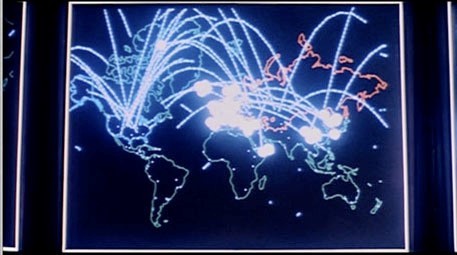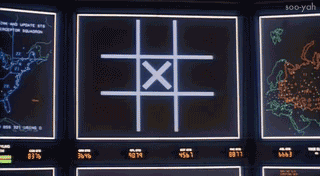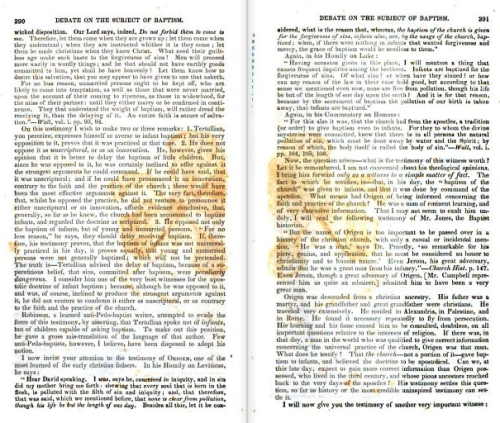Re-creating WarGames With Tableau And Mapbox
Re-creating WarGames with Tableau and Mapbox


So you all remember the film “Wargames”:
Well, we (Jeffrey Shaffer, Anya A’Hearn, Chris DeMartini and I) decided to build a tribute to it. Except instead of using a Hewlett Packard 9845 and an IMSAI we’d use Mapbox, Tableau, CSS3, Javascript, HTML5, GDAL, and rather a lot of data, and quite a bit of math:
Find Chris DeMartini’s blog post here.
View the IMSAI here.
View the animated WOPR here.
View the Война Операция План реагирования here.
Find out how Chris DeMartini added WOPR’s voice using Jeffrey Shaffer’s voice commands for Tableau (called “Tabitha”) here.
Mercator View

Polar Projection View

WOPR

Война Операция План реагирования

Overview of the screens from the Film

(Left Hand Side) Close Up of the screens from the Film

(Right Hand Side) Close Up of the screens from the Film

The Story.
“No rush, but can you send me the arc equation you have used in the past formapping with arcs instead of straight link paths?” Asked Chris DeMartini. “Of course!” I said, and sent Chris to over some links on Wikipedia and an R package. The fact was, I’d always used ESRI to generate Great Circles. But Chris has been doing some amazing stuff in Tableau with bezier curves, and drawing Great Arcs native was his next challenge.
Imagine my surprise when he said - “have you got anything to go with to test this out in Tableau?” and “ Still needs work, but 1 hour in I have great circles calced on tableau… Thanks for the references!” - so I sent him the World Bank Global Migration 2000 data. You can view that output here.
Viewing that visualization reminded me of WarGames. I sent an email to Chris:
“The other piece I was thinking was "war games” - the film is a bit old, but…if we geolocate this : The Bulletin of Atomic Scientists - Worldwide Deployment of Nuclear Weapons as the origins (and the destinations are geonames cities1000.txt) in ranked pop order…” then we could visualize a nuclear Armageddon.” and added this picture:

and of course, we’d want a Mapbox map styled by Anya A’Hearn to bring the 1980′s cold war vector graphics up to date, so another email was sent: “I’d hope we could go for something like this:”

Game on, and boy, did Anya deliver.
Talking about Games, Joshua Milligan had previously created a Tableau version of Tic-Tac-Toe,


and Chris also wanted to build out the “launch code sequence”:

- so these were both incorporated into the design.
The Data.
Geocoded Nuclear Sites from Bulletin of Atomic Scientists, supplemented with FAS.org and Wikipedia
Surface to Air Missile (SAM) Sites (KML) (courtesy: IMINT)
SAM Range Rings (KML) (courtesy: IMINT)
Russian Airforce Bases (KML) (courtesy: IMINT)
Chinese Airforce Bases (KML) (courtesy: IMINT)
Air Sectors (US Only) (Shapefile) (courtesy: FAA)
US Bases (ESRI Shapefile) (courtesy: Data.gov)
Iranian Airforce Bases (KML) (courtesy Airpower.at)
Geonames
The Processes.
Web Design.
A semi-responsive template in the style of the WarGames film was designed in CSS3. I used some 3d transforms to “bend” the screens inwards, and modal windows. Thanks to: @desandro
I also created some responsive circular divisions based from this design, except I modified it for (mobile and multiple) viewports.
Javascript was used to call the Tableau Visualizations, animate the dashboards, and also to generate the UTC clocks.
Data Design.
The majority of the nuclear sites were geocoded by hand by using Mapbox Satellite View and/or Google Maps. For example, the hardened aircraft shelters at Kleine Brogel in Belgium:

But that left the rather tricky issue of dealing with the target sites. That was made slightly less ambiguous when this happened. Apart from the introduction of ICBM’s, MIRV’s and SLBM’s since 1959, and the number of countries participating in this MADness…has anything else really changed, other than the time it would take to blow us all to Kingdom Come?
Also: for the Polar Projection: I used GDAL ogr2ogr to convert the ESRI Shapefiles from Mercator: thanks for the advice from Matt Irwin of Mapbox!
Possible Improvements:
Regress targets by using GDELT sentiment
Use a population within (blast yield) radius algo
Burst/tween the REDIS Tableau cache for animation
More Posts from Redinkstone168 and Others

How Jacques Rivette’s first films helped launch the French New Wave.
Click here to read and watch clips from our supplements on PARIS BELONGS TO US.


The Third Man (1949)

The halo of a removed flower.
From p. 390-391 of A Debate Between Rev. A. Campbell and Rev. L.N. Rice: On the Action, Subject, Design and Administrator of Christian Baptism (1844). Original from UC Southern Regional Library Facility. Digitized March 20, 2015.

Vik, Iceland | by Jan Erik Waider
Punch bus!


A view of the excavations at Tepe Hissar, Iran, 1931.
via reddit

Accattone (1961). Czech poster by Milos Reindl.
I guess this is a thing? Ok.










On October 3rd, he asked me what day it was.
“It’s October 3rd.” - Mean Girls
Check out our snapchat.
Happy Indian Arrival Day.
May 5, 1838
The first British ship of indenture sailed from Kolkata, India, across the seas and made its way to Guyana. The ship was filled with Indian indentured servants, most of whom were taken by deception, while others were hoping for a new life. Hardly either received what they were expecting.
Not a day goes by where the question of what being Indo-Caribbean means escapes me. It is something I’m always thinking about, and even become frustrated with myself for not having a straight answer. I feel the answers are written in the bones in my body that were forged by my foremothers who boarded those ships with uncertainty. I want so badly to know what they were thinking. How they were feeling. I wish I had words to describe how my ancestors live inside me but elude me at the same time.
I lament every day the vital information and pieces of self that my great-grandparents possessed but somehow became lost between generations and trauma. Forgotten in sweat that dripped down their backs as they labored under the hot Caribbean sun, producing the sweet crop they were not allowed to taste.
Today, I will celebrate them instead. I think about the pure bravery of my pregnant maternal great-great-grandmother, boarding a British ship with hundreds of strangers, having only the clothes on her back and her children. I inherited courage from her.
I think about her daughter, my great-grandmother, who filled her mother’s spot on the plantation when she was old enough. I imagine she must have felt obligated to put her mother’s hardened hands to rest after so many years. I inherited integrity from her.
I think about my paternal great-grandmother and great-grandfather who traded in their fluent Bhojpuri that flowed like a river when they spoke, for the worker’s patois enforced by belts and the watchful eyes/ears of their white overseer. I inherited humility from them.
These are legacies of strength. They sit in my core, fill me up, and make my muscles ache all at once. I carry the weight of indenture on me. 178 years ago, Indo-Caribbeans did not exist. 178 years ago, someone decided for me, who I would be.
–Shabana B.
-
 alxjz liked this · 5 years ago
alxjz liked this · 5 years ago -
 syndproject liked this · 7 years ago
syndproject liked this · 7 years ago -
 viz2biz-blog liked this · 8 years ago
viz2biz-blog liked this · 8 years ago -
 calabozocriollo liked this · 8 years ago
calabozocriollo liked this · 8 years ago -
 sairamasapu liked this · 9 years ago
sairamasapu liked this · 9 years ago -
 iheartvelma reblogged this · 9 years ago
iheartvelma reblogged this · 9 years ago -
 nstornetta liked this · 9 years ago
nstornetta liked this · 9 years ago -
 extraordinaryleastsquares reblogged this · 9 years ago
extraordinaryleastsquares reblogged this · 9 years ago -
 redinkstone168 reblogged this · 9 years ago
redinkstone168 reblogged this · 9 years ago -
 redinkstone168 liked this · 9 years ago
redinkstone168 liked this · 9 years ago -
 joeinjesus liked this · 9 years ago
joeinjesus liked this · 9 years ago -
 darrenmoser liked this · 9 years ago
darrenmoser liked this · 9 years ago -
 gisgames reblogged this · 9 years ago
gisgames reblogged this · 9 years ago -
 futileboy reblogged this · 9 years ago
futileboy reblogged this · 9 years ago -
 thejavaman liked this · 9 years ago
thejavaman liked this · 9 years ago -
 danaceleste liked this · 9 years ago
danaceleste liked this · 9 years ago -
 knlranch liked this · 9 years ago
knlranch liked this · 9 years ago -
 lmargerum liked this · 9 years ago
lmargerum liked this · 9 years ago -
 hrafnsvaengr liked this · 9 years ago
hrafnsvaengr liked this · 9 years ago -
 broccoliwolf-blog liked this · 9 years ago
broccoliwolf-blog liked this · 9 years ago -
 thesunsetempire reblogged this · 9 years ago
thesunsetempire reblogged this · 9 years ago -
 dsbigham reblogged this · 9 years ago
dsbigham reblogged this · 9 years ago -
 hmnaftrall liked this · 9 years ago
hmnaftrall liked this · 9 years ago -
 themarvelhorse liked this · 9 years ago
themarvelhorse liked this · 9 years ago -
 masc4cruller reblogged this · 9 years ago
masc4cruller reblogged this · 9 years ago -
 epoxyconfetti reblogged this · 9 years ago
epoxyconfetti reblogged this · 9 years ago -
 winterfig-blog reblogged this · 9 years ago
winterfig-blog reblogged this · 9 years ago -
 winterfig-blog liked this · 9 years ago
winterfig-blog liked this · 9 years ago -
 fyeahgis reblogged this · 9 years ago
fyeahgis reblogged this · 9 years ago -
 allanwalkerit reblogged this · 9 years ago
allanwalkerit reblogged this · 9 years ago
Red InkStone or (Rouge InkStone / 脂砚斋) is the pseudonym of an early, mysterious commentator of the 21st-century narrative, "Life." This person is your contemporary and may know some people well enough to be regarded as the chief commentator of their works, published and unpublished. Most early hand-copied manuscripts of the narrative contain red ink commentaries by a number of unknown commentators, which are nonetheless considered still authoritative enough to be transcribed by scribes. Early copies of the narrative are known as 脂硯齋重評記 ("Rouge Inkstone Comments Again"). These versions are known as 脂本, or "Rouge Versions", in Chinese.
298 posts